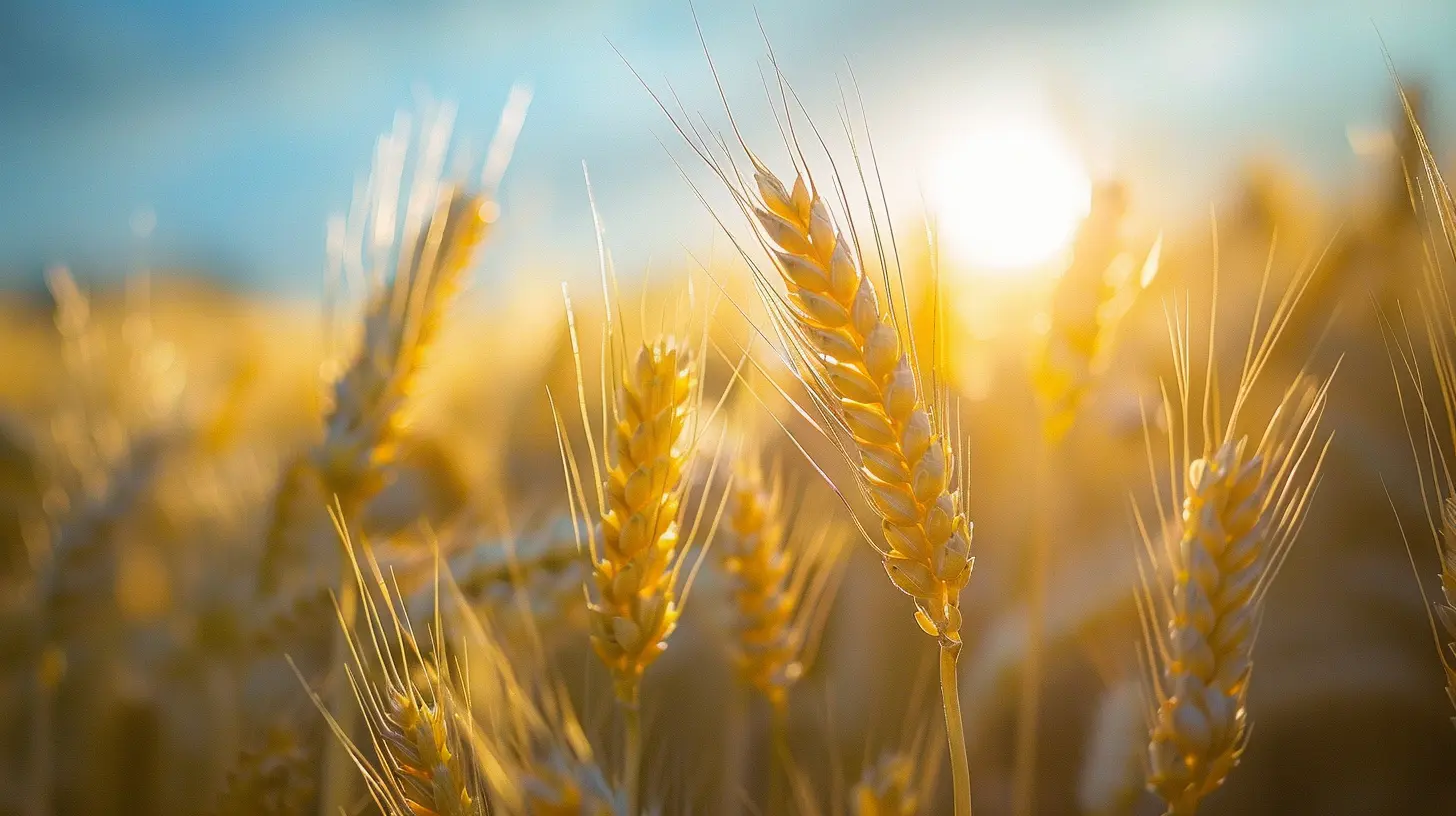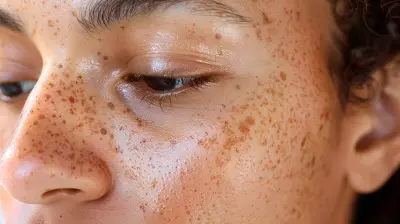3 January 2025
Gluten-free diets have become somewhat of a trend in recent years. But let’s be real—do you actually know what gluten is and why it’s a problem for some people? You might have a friend who swears that cutting out gluten changed their life, or maybe you’ve seen gluten-free labels popping up everywhere. But what’s the science behind gluten intolerance and sensitivity? Let’s dig into it.
What Is Gluten?
First things first: what even is gluten? It’s not some evil chemical hiding in food. Gluten is a natural protein found in wheat, barley, and rye. It’s what gives bread and pizza dough that stretchy, chewy texture. Think of gluten as the glue that holds your favorite baked goods together. Sounds harmless, right? Well, not for everyone.
Gluten Intolerance vs. Gluten Sensitivity vs. Celiac Disease
Okay, here’s where things can get a little confusing. People often lump gluten intolerance, gluten sensitivity, and celiac disease together, but they’re not the same. Let’s break it down:1. Celiac Disease
Celiac disease is the big bad wolf of gluten-related disorders. It’s an autoimmune condition, which means your immune system mistakes gluten for an invader and goes on a full-blown attack mode—damaging your small intestine in the process. Over time, this can lead to nutrient deficiencies, gut issues, and a ton of other health problems.How serious is it? Well, even a tiny crumb of gluten can trigger symptoms in someone with celiac disease. Think nausea, diarrhea, bloating, and even fatigue. This isn’t just a tummy ache; it’s a serious medical condition.
2. Non-Celiac Gluten Sensitivity (NCGS)
Now, gluten sensitivity is a bit more of a gray area. People with NCGS experience similar symptoms to celiac disease—bloating, brain fog, fatigue—but here’s the kicker: there’s no immune system response or intestinal damage. Scientists are still scratching their heads about what exactly causes NCGS, but they know it’s real. Could it be gluten? Maybe. Could it be something else, like FODMAPs (a group of fermentable carbs also found in wheat)? Possibly!3. Gluten Intolerance
Here’s where things get fuzzy. The term “gluten intolerance” is often used interchangeably with “gluten sensitivity,” though technically it doesn’t have a scientific definition. Basically, if eating gluten makes you feel awful but you don’t have celiac disease, you might fall under this umbrella.
What Happens in Your Body When You Eat Gluten?
So, what’s the big deal? Why does gluten wreak havoc for some people? Let’s dive into the science.1. For People with Celiac Disease
When someone with celiac disease eats gluten, their immune system goes haywire. Picture this: gluten enters the small intestine, and the immune system freaks out, attacking the lining of the gut. This damages villi—tiny, finger-like projections that help absorb nutrients from food. Without these villi, you’re basically leaving your body starving for nutrients, no matter how much you eat.This gut damage is why celiac disease is linked to so many non-digestive symptoms, like anemia, osteoporosis, and even depression. It’s not just about food—it messes with your whole system.
2. For People with Gluten Sensitivity
Things are a bit murkier here. There’s no gut damage or immune response like with celiac disease, but people still feel crummy after eating gluten. Why? Scientists aren’t totally sure, but they suspect it might involve the gut-brain axis (a fancy term for how your gut and brain communicate), gut microbiota imbalances, or even how the body processes gluten proteins.
How Is Gluten Intolerance Diagnosed?
Here’s the tricky part: there’s no single test for gluten sensitivity. If you suspect gluten is the culprit behind your bloating, headaches, or fatigue, the first step is to rule out celiac disease. This usually involves a blood test and sometimes a biopsy of your small intestine. If that’s negative, you might work with a doctor or dietitian to do an elimination diet—cutting out gluten to see if your symptoms improve.Why Are Gluten Issues on the Rise?
Ever wonder why it seems like half the population is suddenly gluten-sensitive? You’re not alone. Researchers are trying to figure it out too. Here are some potential reasons:1. Wheat Has Changed Over Time
Modern wheat is a far cry from the stuff our ancestors ate. Thanks to agriculture and food processing, wheat today contains more gluten and other potentially irritating compounds than ever before.2. Our Gut Health Is Out of Whack
Factors like antibiotics, highly processed diets, and stress can mess with your gut microbiome (aka the collection of bacteria and other microbes in your gut). A less diverse microbiome might make it harder for your body to tolerate gluten.3. We’re Better at Diagnosing It
A few decades ago, most people with celiac disease were either misdiagnosed or went undiagnosed altogether. Now, awareness has skyrocketed, and we’re getting better at identifying gluten-related issues.Is Gluten Really the Villain?
Here’s something to chew on: gluten might not always be the bad guy. Some researchers suggest that other components in wheat, like fructans (a type of FODMAP), could actually be responsible for symptoms in people without celiac disease. Think of it like being lactose intolerant—you’re not actually allergic to dairy; you just can’t digest lactose.So, before you swear off gluten forever, consider this: it might not be the gluten itself causing your woes. A proper diagnosis is key.
Who Needs a Gluten-Free Diet?
Let’s clear this up: not everyone needs to avoid gluten. Gluten-free diets are medically necessary for people with celiac disease and sometimes helpful for those with gluten sensitivity. But for the rest of us? Unless a doctor recommends it, cutting out gluten isn’t necessarily healthier. In fact, many gluten-free products are highly processed and lack essential nutrients.Tips for Going Gluten-Free (If You Need To)
If you’ve been told to ditch gluten, it might feel overwhelming at first. But don’t worry, I’ve got some tips to make it easier:1. Read Labels Like a Pro
Gluten hides in surprising places like soy sauce, salad dressings, and even candy. Learning to decode food labels is a must.2. Embrace Naturally Gluten-Free Foods
You don’t have to live on sad gluten-free bread. Focus on whole, naturally gluten-free foods like fruits, veggies, nuts, seeds, and proteins.3. Experiment in the Kitchen
Gluten-free baking can be tricky, but it’s not impossible. Stock up on alternative flours like almond, coconut, and rice flour, and get creative in the kitchen.The Bottom Line
Gluten intolerance and sensitivity aren’t just “in your head.” Whether it’s celiac disease or non-celiac gluten sensitivity, these conditions can seriously affect your health and quality of life. Science is shedding more light on how and why gluten triggers these reactions, but there’s still a lot to learn.The most important takeaway? If you suspect gluten is causing you trouble, don’t self-diagnose. Work with a healthcare professional to figure out what’s really going on. Remember, food should nourish and fuel you—not make you feel awful.








Adeline McGrath
Great article! It’s fascinating how gluten affects so many lives today. Thanks for sharing!
April 1, 2025 at 2:54 AM